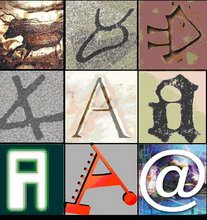Dear all,
with the usual apologies for eventual cross-postings, along with the request
for forwarding the following to appropriate lists and potentially interested
colleagues - and many thanks in advance,
- c.
Institut for Informations- og Medievidenskab
Helsingforsgade 14
8200 Århus N.
Denmark
mail: <imvce@hum.au.dk>
tel: (+45) 8942 9250
===
Call for Papers for a Special Issue of New Media & Society: ŒInternet
Studies: The State of an Emerging Field¹
Editor: Charles Ess, Guest Professor (Professor med særlige opgaver),
Department of Information and Media Studies, Aarhus University, Denmark, and
Professor, Philosophy and Religion, Drury University.
and
William H. Dutton, Professor of Internet Studies, Oxford Internet Institute,
University of Oxford
Background
In 2005, Nancy Baym edited a special issue of The Information Society (Vol.
21, No. 4) that asked the question, ³Is ŒInternet Research¹ a Virtual Field,
a Proto-Discipline, or Something Else?² In 2010, two handbooks of Internet
Studies will appear (edited by Hunsinger, Kastrup, & Allen [Springer] and
Consalvo & Ess [Wiley-Blackwell]) while a third has been launched (Dutton
[Oxford University Press]. These publications document the emergence and
development of Internet Studies as a field of research and scholarship in
its own right, one affiliated with a characteristic topoi of issues,
research questions, methodologies, and its own distinctive ethics.
To further explore the broad terrains and structures of this emerging field,
the Oxford Internet Institute is organizing a series of workshops and
lectures over the next two years, intended to encourage and gather critical
analyses and perspectives from a number of internationally-recognized
scholars and researchers, along with younger colleagues whose research
promises new insights and perspectives. The first of these workshops, held
at Aarhus University on 19 March 2010, took stock of the field by critically
assessing the two major volumes on Internet Studies (Consalvo and Ess 2010,
and Hunsinger et al 2010), with a view towards developing further insights
for the field, its current and future directions, and its (potential)
significance and impact. Future workshops are being organized, including one
that will be held in Barcelona in early 2011. Steve Jones
(<http://www.oii.ox.ac.uk/events/?id=380>), and Matthew Allen
(<http://www.oii.ox.ac.uk/events/?id=344>) have held lectures in this series
at the Oxford Internet Institute, and Charles Ess
(<http://www.oii.ox.ac.uk/events/?id=390> will present one of a number of
future lectures.
A special issue of New Media & Society is intended (a) to encourage and
collect the development of scholarly contributions developed initially for
these workshops, and lectures, and (b) gather related scholarly research and
reflections from the global community of Internet scholars and researchers.
These contributions will build on the existing and forthcoming handbooks and
related compilations to stimulate and inform global discussion about the
emerging field of Internet Studies.
Accordingly, we invite contributions from across the range of disciplines
applied to study of the Internet that address our thematic questions,
beginning with: can ³Internet Studies² be discerned and demarcated as a
field (or fields) of academic research and scholarship out of the rapidly
growing body of research and scholarship intertwined with the Internet and
the array of human interactions it facilitates? And: insofar as Internet
Studies can be argued to exist as a field(s) what are its defining
characteristics, including, e.g., a distinctive set of objects of study,
research questions, methodologies, a body of findings and literature
recognized as foundational or definitive, ethical guidelines, professional
expectations, and whatever else we may argue to be necessary, if not
sufficient, conditions for an academic field(s) of study?
Contributions may take one of two forms. One, authors may seek to develop
comprehensive and authoritative overviews of how an important topos of
research on the Internet (e.g., social interactions, emotion, identity play
and development, etc., etc.) has been studied, important findings, and areas
in need of further research. Two, authors may take a critical perspective on
the field as a whole or any sub-field within this area. Generally, the
special issue will not focus on the presentation of specific research, even
though it might connect well with and reflect upon a broader synthesis or
overview of a larger domain of Internet research. Other special issues and
articles are well suited for the publication of original research. This
issue will be more focused on generating the most stimulating syntheses of
the field defining the vitality and overall state of the field.
Selected contributions will appear in the special issue of New Media &
Society.
Submissions are due to the editors by December 31, 2010. Submissions
accepted by the editors will be returned to the author(s) for any needed
revision by 31 March 2011; final versions will be due back to the editors by
30 June 2011, followed by an external review process resulting in final
acceptance / rejection / or acceptance with revisions. Final versions of
accepted papers will be due by 1 December 2011. Authors¹ Guidelines are
available on the New Media & Society website at
<http://newmediaandsociety.com/index.php>: accessing these will require
signing up for a user id and password (also necessary for any eventual
submission to the special issue.) Briefly: submissions require an abstract,
keywords, and a target length of no more than 8,000 words, including notes
and references. Documentation is Harvard style.
For further information about our workshops, lectures and this special
journal issue, please feel free to contact either of the editors:
Charles Ess: charles.ess@gmail.com
William Dutton: director@oii.ox.ac.uk
quinta-feira, 1 de julho de 2010
Assinar:
Postar comentários (Atom)


Nenhum comentário:
Postar um comentário